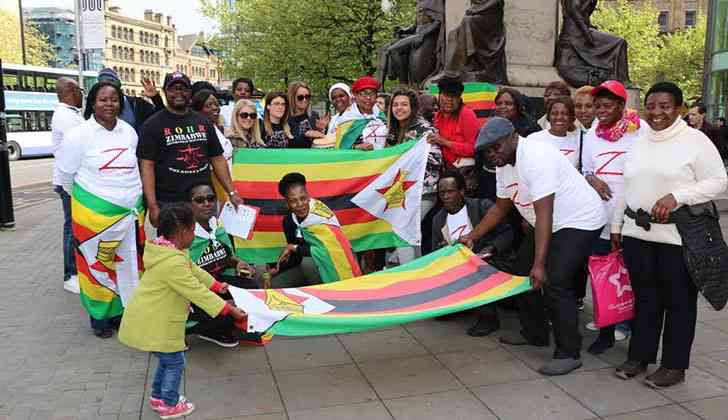
BEST practices from African territorial markets demonstrate the value of profiling women as part of markets and ecosystems.
That approach does not only portray women as part of resilient ecosystems, but can guide local authorities to design women-friendly markets.
As micro, small and medium enterprises (MSMEs) women who specialise in catering, packaging or clothing are part and parcel of the supply chain which has vertical and horizontal synergies with others like those into groceries.
Harnessing the convening power of territorial markets
In most African economies, the convening power of territorial markets tends to pull agricultural and non-agricultural enterprises into one ecosystem.
Challenges affecting territorial markets also affect women SME enterprises, for instance the absence of ablution facilities.
Food catering is 99% in the hands of women who are often seen moving around due to absence of space, in spite of food being an essential service.
Territorial markets also show how women are the nutrition knowledge brokers such that it is critical to assess the type of knowledge they use when packaging carrots, peas, butternuts and many other commodities.
- Mixed feelings over credit registry
- Anti-child marriages campaign launched
- New Horizon: Leveraging MSMEs growth through free trade in Africa
- ZWMB on brink of closure
Keep Reading
Most women are doing their work quietly and no one is tracking their knowledge or expertise.
However, working conditions often favour men and are not designed to accommodate women who are mostly cooking food in the backyards while men do the heavy steel work that is recognised.
In addition, many women SMEs bring their young children to their work places, pointing to the need for child playing centres.
More importantly, health services should be closer to markets where more than 60% of SMEs are run by women.
Women as victims of financial exclusion and intellectual theft
Formal financial institutions have been reluctant to adjust their policies to accommodate women needs.
Consequently, most women end up at the mercy of loan sharks.
As if that is not enough, innovations by women do not receive the recognition they deserve.
For instance, women are repositories of value-addition knowledge for mahewu and other indigenous foods.
But because there is no support for their growth, men hijack and develop these value chains into corporates.
For example, big companies are the ones that put peanut butter in supermarkets because they can be on the suppliers’ list, while women are seen walking with their peanut butter selling door-to-door.
Understanding ecosystems where women operate as well as synergies between rural and urban women is very important.
When rural women dry vegetables, they are thinking of urban women who can prepare and trade dried vegetables in towns.
As they grow indigenous pumpkins, they have their urban peers in mind who know the nutritional value of the crop being produced.
Besides sustaining territorial markets and SMEs, women’s knowledge continues to be the foundation for the future of African entrepreneurship.
Such knowledge should not be allowed to disappear due to the misguided perspective that knowledge only comes through formal colleges and universities.
Women as promoters of indigenous food systems
As African countries try to build resilience along agricultural supply chains, women have proved to be the best promoters of indigenous food systems and resilience.
Meticulous studies can reveal how an increase in the price of poultry feed impacts women more because they are into poultry and also into catering businesses.
Research evidence can also show how an increase in the cost of data bundles pushes women into further marginalisation as it turns communication into a luxury. On the other hand, women traders are better classifiers of customers unlike supermarkets, where a kg of meat is a kg of meat irrespective of consumer class.
The process of breaking bulk in African territorial markets is informed by the wisdom held by vendors that there are consumers who cannot afford something for a dollar.
If women have more knowledge about consumer groups, they should be the key informants for most products and socio-economic interventions.
With the right evidence-based approaches, it is possible to increase women competitiveness within supply chains so that they remain resilient when the going gets tough.
By noticing and recognising patterns of success in territorial markets and MSMEs, policy makers can ride on existing relationships and institutions to establish relevant financial packages that mimic what already exists.
Labour issues are no longer about wage employment, but working environments where the majority are now their own employers.
Special zones should be established for women specialising in indigenous foods to work in clusters in promoting indigenous foods.
Unfortunately, most market sheds and other related infrastructure have been abandoned by traders to the extent of becoming white elephants because local authorities set these structures without consulting intended users.
Gender-specific in-depth studies can inform appropriate ways of setting the right infrastructure for women entrepreneurs.
Such studies can also show how women entrepreneurs recover from traumatic shocks like COVID-19 or the recent fire incident that reduced Mbare market of Harare to rubbles.
Unless resilience is carefully unpacked, it becomes difficult to develop indicators of resilience and progress.
For instance, elements related to the resilience of urban and rural women should be fully understood.
In most countries, there is no physical boundary between urban and rural when it comes to knowledge and actors, just as it’s difficult to see where rural and urban end.
People in rural communities should have relevant knowledge because that is the demand side.
If an urban woman entrepreneur does not know needs of a rural woman farmer, collective resilience is compromised.
On the other hand, resilience is strengthened when urban women realise that they cannot exist without rural women.
Links between urban and rural women should be reflected in capacity-building efforts.
- Charles Dhewa is a proactive knowledge broker and management specialist










